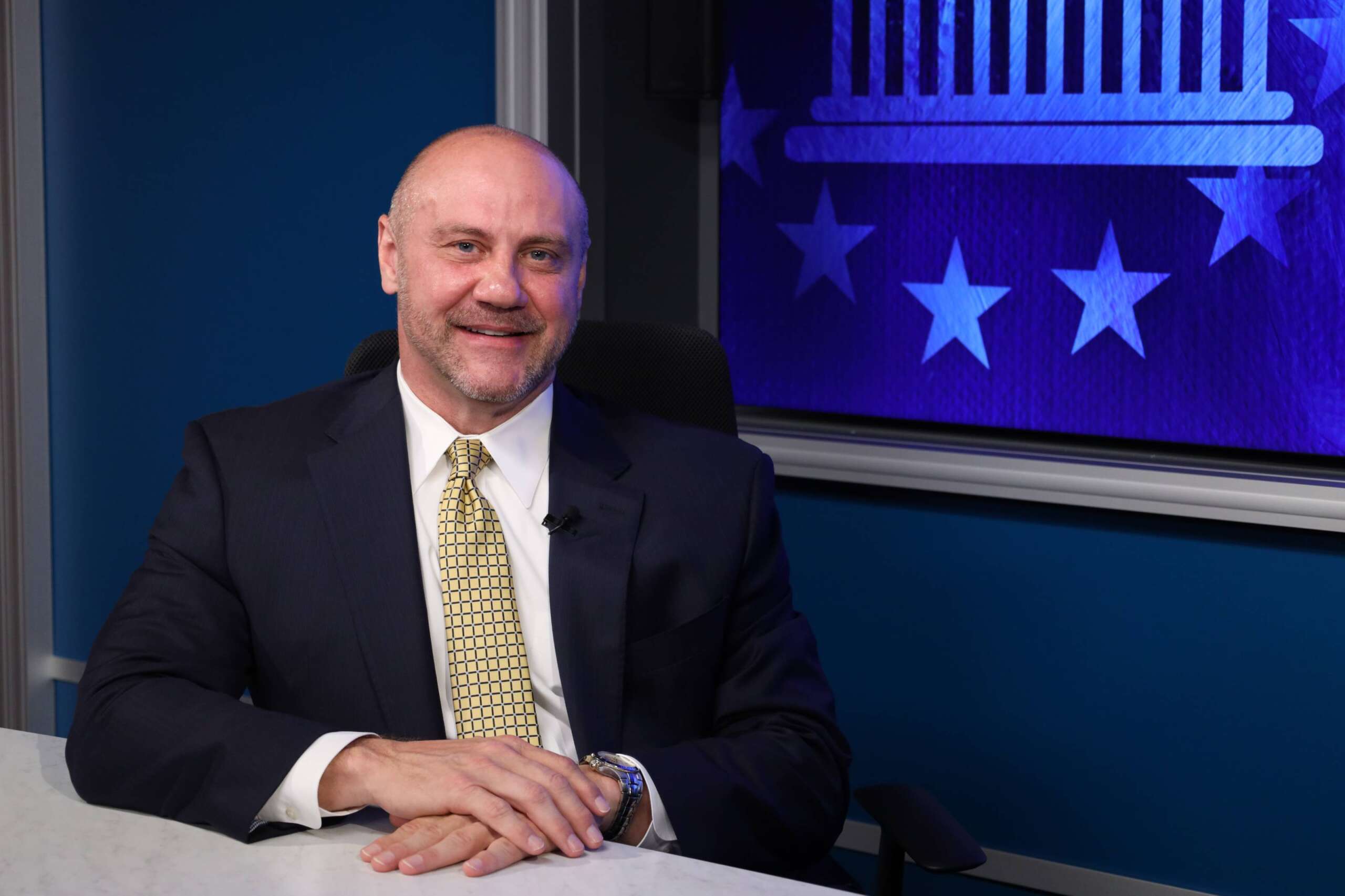Lessons learned in contracting, from a career in the Army to a second act at Leidos
“It’s an interesting challenge that contracting officers have. They have to be experts in so many areas. … There’s a high expectation and a premium on experiential knowledge.”
— Kim Denver, senior vice president and chief corporate contracts executive, Leidos
Kim Denver
Senior Vice President, Chief Corporate Contracts Executive, Leidos
Building authentic relationships while also using metrics to measure performance
“It’s very important to understand your audience and what their challenges are. So you’re helping them through that and what you’re presenting isn’t necessarily self-serving, but it’s in the collective interest.”
— Leidos’ Kim Denver
Kim Denver
Senior Vice President, Chief Corporate Contracts Executive, Leidos
This is the third article in our series, Leading Voices in Federal Contract Management.
Kim Denver likes to say that in government contracting, the real decisions are made in “Middle-earth.”
The analogy to J.R.R. Tolkien’s Lord of the Rings trilogy makes sense given the pivotal role contracting organizations play in the government. Federal contracting officers must make critical decisions based on recommendations that they get from their colleagues and from vendors while also managing a fiduciary responsibility to protect both the government and its contractors, says Denver, senior vice president and chief corporate contracts executive at Leidos.
“It’s an interesting challenge that contracting officers have,” he said. “They have to be experts in so many areas, and it’s a challenge. There’s a high expectation and a premium on experiential knowledge.”
Denver should know, as he’s spent his career in federal contracting, much of it in the government. Before joining Leidos in 2013, he culminated 30-plus years in federal contracting and acquisition as the deputy assistant secretary of the Army for procurement, overseeing 8,000-plus contracting officials.
“When you mention operational maturity, the first thing that comes to my mind is the people,” Denver said. “It clearly also gets into your processes, your procedures, your systems. But ultimately, it’s about your workforce, their training, the level at which they operate.”
Understanding your government audience
A key reality that Denver says he brought with him to the private sector is the critical importance of realizing how much work transpires in the government’s contracting organizations and how much relationships with people in those organizations matter if you’re a federal contractor.
“That’s where the decisions are being made. Sometimes it’s appropriate to punch high up. Sometimes it completely decreases your efficacy. You have to understand where in the organization to work,” he said. Ultimately, contracting officers are the linchpins, the liaisons, between a contractor and the customers in government needing something from that contractor.
That’s why, while it’s critical to have knowledge both about contracting and processes in the federal government, it’s essential to make connections.
“The more that you engage in this network … the more ideas you get, the more well-known you are,” Denver said. That way, federal contracting organizations see that the vendor’s contract organization understands the profession, is innovative and presents ideas that are in the collective interest of both parties, he said.
Embracing collaboration with the government
Building those relationships, he said, also helps address a critical aspect of federal contracting: compliance.
“When people think of compliance, they think of compliance as almost a tripwire, right? It’s black and white. It’s not gray,” Denver said.
Actually, there can be a lot of gray, he said, in part because no two contracts are the same. Compliance involves more than just checking a box and requires a few things of federal contractors:
- Being aware of both explicit compliance requirements and federal regulations
- Understanding the government’s expectations for the specific project or contract
- Having a consistent, continuous and “genuine” relationship with federal contracting organizations
“What you would think is a tripwire, a black-and-white situation, often requires collaboration … to discuss the issues that exist with what might look like a compliance issue,” Denver said. When that happens, having a team that has ongoing relationships with federal contracting organizations becomes essential, he said.
Integrating technology into contracting processes
At Leidos, the contracting organization focuses on driving value three ways — by supporting growth, by increasing returns and by managing risk, Denver said. Although he places a premium on people and relationship building in delivering value to Leidos, technology clearly plays a role in contract management delivering value too, he said.
“The important thing to understand is a contracts organization is not an organization unto itself,” Denver said. “It exists to support clients internal to the company and collaborate with external customers.” Therefore, any technology used within the contracts organization must integrate with other technology used throughout the business and deliver value.
Denver says he has been adopting technology that allows him to take “my most seasoned professionals and put them on the hardest problems.”
By way of example, he pointed to robotics process automation and artificial intelligence and machine learning. Increasingly, those help the organization quickly gather and analyze information so that people “can arrive at better solutions and put their value where it’s best used.”
To read more articles in the Leading Voices in Federal Contract Management series, click here.
Copyright
© 2024 Federal News Network. All rights reserved. This website is not intended for users located within the European Economic Area.







